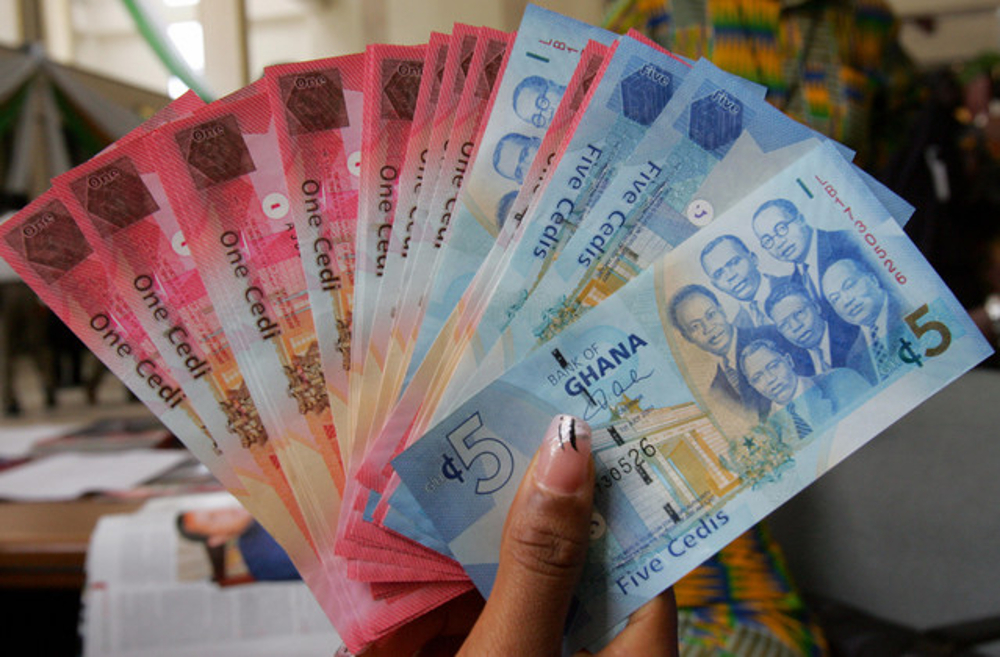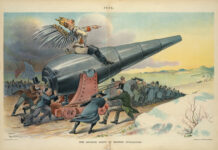Almost eight years ago, the Ghanaian government performed an act that its leaders knew would come back in boomerang fashion. It artificially overvalued its currency.
Although Ghana wasn’t producing any goods of high export value, President John Kufuor raised the Cedi’s value to a one-to-one ratio with other international currencies like the US dollar.
Kufuor, who served as President of Ghana from 2001-2008 and held a 1-year term as Chairperson of the African Union in 2007, spoke of good intentions in his decision to artificially raise the Cedi’s value.
Opponents of Kufuor’s decision lambast his lack of leadership in directing the country on the best path towards prosperity.
Yemi Sarkodie, a senior economic analyst at a leading financial company, said: “Ghana doesn’t produce anything. [Kufuor] could have used the money to invest in industries.”
One government worker, who asked not to be named, called the currency raise “a disaster waiting to happen.”
Initially, Kufuor hoped that the economic upswing for residents and business owners would encourage more investments in purchasing products that would propel local business. Instead, the period of financial leniency only helped Ghanaians purchase a number of consumer goods, especially automobiles, from foreign nations.
Meanwhile, jobs were not created at a rate that stifled social problems like homelessness and malnourishment.
In the end, no one would dispute that the move to artificially raise the value of the Cedi certainly backfired and thus cannot escape the reverberant lashings of hindsight’s critics.
Instead of riding out tough times eight years ago, Ghana’s Kufuor-led government, a product of the nation’s newfound democracy, only set up the skeleton for a burden to be passed onto the next generation: a burden that will, by all accounts, extend deep into the billions.
For almost a decade, Ghanaian elders have allowed themselves the pleasure of transforming their monetary riches into imports from other nations. Since their boom in external purchases, however, that one-to-one ratio between the US dollar and the Ghana Cedi has now diminished in value.
Indeed, the currency equivalence or dominance, in some cases, between the Ghana Cedi and many national currencies has also weakened. Today, it costs almost three to four times the amount it did just months ago to purchase an item from outside of Ghana.
For residents in the city of Accra, one of Africa’s leading business centers, their purchasing power has drastically decreased, aligned with the International Monetary Fund’s strategy for decreasing consumer imports and producing more goods within the country.
With Ghana under the thumb of an IMF loan, residents have begun feeling the pinch, which experts warn, will only get worse from here.
Predictably, the economic changes have led to harsh swings in business.
One businessman, Kwame Frimpong, who deals in real estate, explained that he recently had to cancel a large shipment of steel from China. With the new currency valuations in place, he could only afford one-fourth of his initial shipment–not enough to continue with the construction of a commercial retail space.
Thousands of business and market people in Ghana will, no doubt, feel the same effect.
There is a silver lining, however, if the Ghanaian economy and its residents are finally and wholeheartedly willing to embrace the weight of the impending brunt that faced them eight years ago–only this time the impact is greater.
Money corrupts. Absolutely.
The thing that killed an economy began with a single desire to possess what the local economy did not produce and at a rate it could not afford.
Meaningful increases in local production accompanied by decreases in desire for foreign materials can perhaps absorb some of the recent economic hits.
Through a reassessment of lifestyle in a direction that embraces the balance of African economic tradition, while resisting the insatiable global gluttony of western life, Ghana can move beyond affixing a simple patch on a contemporary problem and onto a path of greater economic security.
Eddy Dankwa, an author, said:
“Even if they were born in Accra, all my children would have to go back to my village to learn how to farm and fish. Why will they go to school to get a job just so that they can earn money to buy food to eat? There is already food right here. Why go the round-about way to get it? Why do all those things and go in debt just to get food that is right here? We can make everything right here my friends. We can!”











I don’t think Mr. [John] Kufuor understood the economics he was taught in school. He lapped up every western theory on the subject. 2001 – 2008 was a period in Ghana’s history that only deserves to be wrapped up and thrown into the dustbin of nonsense! Much of Ghana’s economic forsigtedness or lack thereof is symptomatic of a lazy and baseless insight.
By artificially squaring the cedi with other top currencies Kufuor encouraged a masses of little intelligence but with hard earned money – cocoa, gold, diamonds, oil – to buy up dross from the US, China and Europe in the name of a better lifestyle – fit for a 21st century economy. Of cause, the US, China and the EU were happy! Very happy.
And he Kufuor was rewarded by the corruption that sits at the root of his diminutive brain. What would Kufuor know about economics? He never knew that such a subject existed in Ghana before the first Obroni savage stepped foot on the coast. All Kufuor had ever accomplished was read a book by some western author and spew it. That’s all.
Neither Kufour nor Rawlings, nor Liman, had anyone around them with a basic understanding of food, shelter and clothing – farming, fishing and cooking. So, on they went and borrowed. From the World Bank, the IMF and on. And borrowed, and borrowed. Alas, for what? To build more farms and expand the seas? No, no, no. They and the friends who they had surrounded themselves with had read in those uncouth Blorfo books that you must borrow, borrow and borrow!
Yes, the west thrives on other people’s debt! If they didn’t, all that aid will be in the form of debt relief. But they won’t relief you of your debt and that is how they have you by the balls. African leader, no only Ghana, are the idiots. Big fucking idiots.